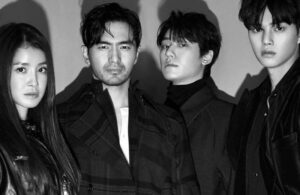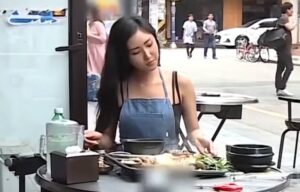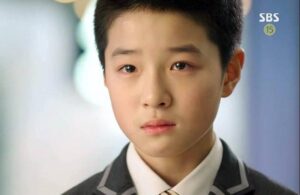Are These K-dramas Makjang Enough for You?

If you like kimchi slaps, switched at birth and secret identity storylines, you just might be a makjang fan!
Journalist, Author & Syndicated Columnist

If you like kimchi slaps, switched at birth and secret identity storylines, you just might be a makjang fan!

The New York Times interviewed me for their piece about product placement (like Subway!) in K-Dramas.

“Sweet Home” has some incredible highs. But unlike “Kingdom” or “Uncanny Counter,” where action supplements the storyline, “Sweet Home” has too much mediocre filler to make it a truly great K-drama.

Happy International Women’s Day to the cast of “The Penthouse 2.” These amazing actresses prove that you don’t need a Second Lead Syndrome — or any kind of romance — to keep viewers coming back for more.

Most of the characters in “Lovestruck in the City” would’ve benefited with some therapy to work things through and move on from unhealthy relationships that should’ve been severed early on.

Like “Train to Busan,” “Kingdom” was released well before the coronavirus outbreak cause pandemonium worldwide. Both are sociopolitical projects disguised as zombie horror thrillers, where those in power don’t try to prevent the outbreak, so much as they try to stop news of the outbreak from being released. The public’s ignorance suits their own needs.

Celebrities are like all of us. When we’re hungry, we can’t function. But Korean celebs are extra when it comes to eating — it seems like they’re starring in their own mukbangs.

There are several subplots percolating in “Run On,” but the most interesting was the bullying, especially in light of the accusations of real-life bullying scandals surrounding idols and actors. This K-drama offers a perspective that bullying is a part of Korean hierarchy, and those with wealthy and powerful parents won’t be punished. Those who are poor and powerless won’t get justice.

Because Korea has a long and complicated history with the purity of bloodlines and a general disdain for adoptees, I had always found it strange that so many Korean dramas dealt with issues that the mainstream media was reticent to cover. But in some ways, K-dramas can be very progressive in covering touchy topics. Hopefully, seeing orphans and adoptees depicted simply as children who deserve to be loved and cared for — like any child — is helping to lessen the stigma of kids whose biological parents are no longer in their lives.

“The Penthouse” got a lot of notoriety because of screenwriter Kim Soon-Ok’s makjang storylines, which were both a lot of fun and over the top. That said, there are plenty of other Korean dramas that hold their own when it comes to being overly dramatic (in a good way).